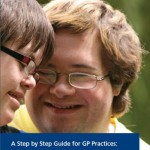
We have posted previously about health checks for people with learning disabilities, for example, the work of My Life My Choice, who looked at why it was that so few people with learning disabilities in their locality were getting access to annual health checks.
We have also posted about the findings of a systematic review into the effectiveness of health checks, which involved 38 publications over a twenty year period based on work with over 5000 people with learning disabilities. The balance of the evidence presented in this review led the authors to conclude that annual health checks could improve detection of unmet, unrecognised, and potentially treatable conditions and led to targeted actions to address health needs.
This week saw a BMJ editorial in which the Royal College of General Practitioners’ clinical champion in intellectual disabilities and two colleagues reiterated the need to maintain focus on improving health services support to people with learning disabilities.
They point out that whilst life expectancy is increasing in people with mild learning disabilities, mortality from preventable causes is three times higher among people with moderate to severe learning disabilities than in the general population. However, despite the evidence supporting their effectiveness, it appears that only 53% of people with learning disability received a health check in England in the last financial year with a good deal of variability between the best and worst performing primary care trusts.
The authors point out that the annual health checks programme is currently being renewed on a yearly basis in England, but this means there is no firm long term commitment to its continuation and therefore no clear strategy for evaluation and benchmarking of results at the practice level.
They suggest that without this strategic commitment, there may continue to be a wide range of disparities and a
widening of the health inequality gap between those with intellectual disability and the general population.
Annual health checks for people with intellectual disabilities potentially an important step towards reducing health inequalities, Hoghton M et al., in British Medical Journal 2012;345:e7589
